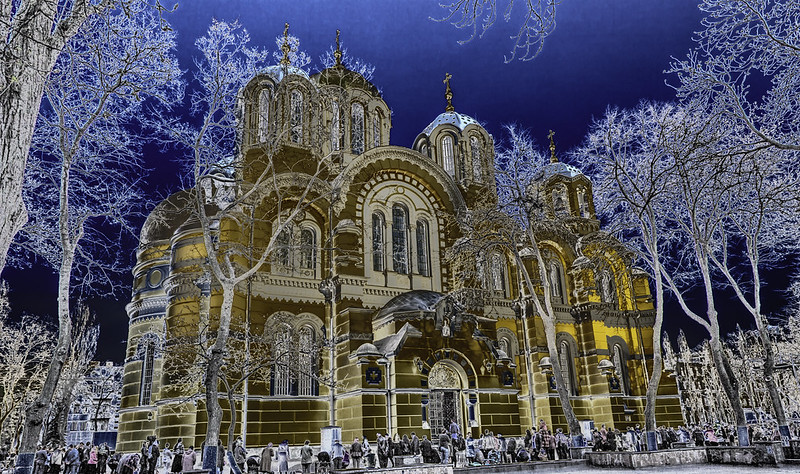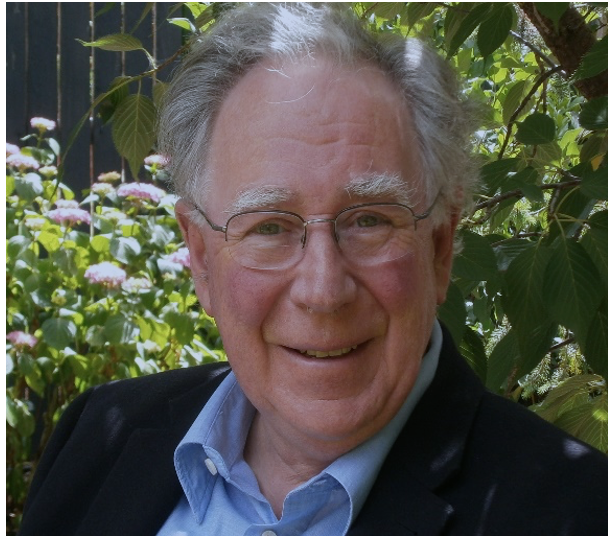What motivates Putins invasion of Ukraine? Dont underestimate history and religion
February 27, 2022
_There is a theory that he has an almost mystical notion of Russia of which Ukraine and particularly Kiev are integral parts.
_
Various motives have been assigned to Vladimir Putins invasion of Ukraine.
Some say hes just a thuggish, power-hungry holdover from Soviet days who wants to re-establish the USSR, or even the Czarist empire, or that he wants a subservient buffer state between the Russian homeland and NATO. Others just think hes mad.
Another theory is that he has an almost mystical notion of Russia of which Ukraine and particularly Kiev are integral parts. An editorial in the London-based Catholic weekly _The Tablet_argues that there is a religious reason for his actions, saying that Putin believes that there is a mystical union in what used to be the land of Holy Rus, a sacred bond between people, land and the Orthodox faith. In this sense ancient Rus is an icon revealing the presence of God.
Supporting this notion is an historical essay of 6,900 words in English that Putin published in July 2021 describing this religio-mystical union. Its fascinating. He says that it outlines what I firmly believe and claims that Russians, Ukrainians andBelarusians are all descendants ofAncient Rus and are one people.
In the tenth century they were converted to theOrthodox faith. Thespiritual choice made bySt. Vladimir, Putin says, who was both Prince ofNovgorod andGrand Prince ofKiev, still largely determines our affinity today. Vladimir ruled what is now Ukraine, western Russia and Belarus. As The Tablet says with our Western separation of church and state, we could easily miss the relevance of this early history. In his essay Putin refers to TheTale ofBygone Years, a chronicle attributed to the eleventh century monk Nestor, but most likely a compilation of several authors; it is the somewhat unreliable source for the conversion of ancient Rus.
Kievan Rus emerged in the ninth century from the Slavic people who lived east of the Elbe River and the Carolingian empire. Kiev had the advantage of being on the Dnieper River, the trade route from the Baltic to Constantinople used mainly by Scandinavian Vikings. Novgorod, the key northern city on this trade route, was established by the Vikings in the mid-800s.
For Putin the key figure is his patron saint, the part-Viking, part-Slav, Vladimir, king of Kievan Rus. A violent man with a voracious sexual appetite, Vladimir seized power by killing his brother in 980. A pagan, he decided he needed a more politically stable religion and he chose Byzantine Orthodoxy, probably influenced by his formidable grandmother Olga who had already converted to Christianity in Constantinople. Kievan Rus already had close contact with the Byzantine empire and Vladimirs conversion was part of a complex of military, political and cultural issues.
If the ruler was Christian, so also his subjects. The monk Nestor describes Vladimirs forced baptism in 988 of a whole village. Vladimir accompanied by the priests went to the Dnieper, where there was a gathered an innumerable crowd of men who entered the water, some up to the neck, others only to the chest. The children stayed on the bank and were covered with water some swam here and there while the priests said their prayers. This formed a spectacle tremendously curious and beautiful to see.
Putins essay argues that the word Ukraine comes from theOld Russian word okraina meaning periphery. He says theword originally referred tofrontier guards who protected theexternal borders. But the problem is that by the mid-fourteenth century Kiev had been absorbed into greater Lithuania and it didnt become part of the Russian Empire until the late-seventeenth century. Putin argues that theincorporation ofthewestern Russian lands into thesingle [tsarist] state was not merely theresult ofpolitical anddiplomatic decisions. It was underpinned bythecommon faith, shared cultural traditions, and language similarity.
Putins potted history concludes with the collapse of the Soviet Union. He tells us that many people inRussia andUkraine sincerely believed andassumed that our close cultural, spiritual andeconomic ties would certainly last, as our people always had asense ofunity attheir core. But that didnt happen and he blames Ukraine’s ruling circles who rewrote history, editing out everything that united us and turning theperiod when Ukraine was part oftheRussian Empire andtheSoviet Union [into]anoccupation.
He claims that the West and NATO used Ukraine as abarrier against Russia. Inevitably, he says, there came atime when theconcept ofUkraine is not Russia was no longer anoption for him. That time, apparently, is now and the result, an invasion.
Dont get me wrong here. Neither The Tablet nor I are trying to justify Putin. Hes an immoral thug. But hes not a fool and even if hes not convinced of this pseudo-religious history himself, hes using it as part of his justification for the invasion.
Also in the background here is some recent ecclesiastical skulduggery. In the Tsarist period the Ukrainian church was absorbed into the Moscow Patriarchate, which in post-Soviet times has been aiming to take-over the role of leader of Orthodox churches worldwide from the Ecumenical Patriarch of Constantinople (Istanbul). In 2018 the present Patriarch, Bartholomew I, granted the Ukrainian Orthodox church autocephalous (independent) status after it shifted its allegiance from Moscow to Bartholomew, leading to a major rift and opposition from the Russian church and government. There are still some Orthodox faithful in Ukraine who recognize Moscow.
This history helps us understand something of Putins motivation and/or justification for his invasion. The Tablet editorial says he is obsessed with the history of ancient Rus. But how many other Russians share this obsession? And what justification for a violent invasion can any Christian or church derive from the teachings of Jesus? This is surely as basic a challenge for Russian Orthodoxy as the crusades were and are for Western Christians.

